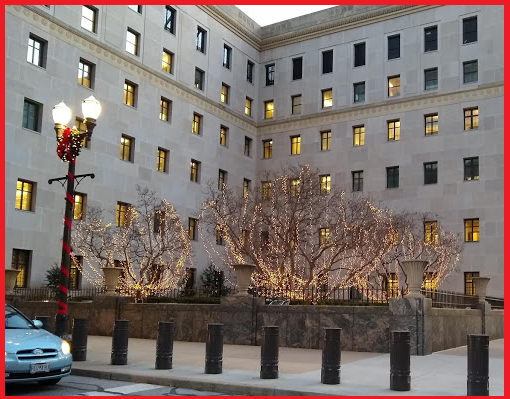| Back to Back Issues Page |
 |
|
Useful Community Plus December 12, 2019 |
In This Issue: Appreciative Community Development, 
Best wishes for holidays filled with unexpected beauty and appreciation for your community. New On the Useful Community Development Website This MonthThis month we created these new pages when we answered questions from you folks, the site visitors:Responsibility for knowing deed restrictions and HOA rules Can I build whatever I want on my Florida property? As you might guess, our answer was no, no, no, let us count the ways. What to do when fewer homeowners and tenants are keeping up their landscape and homes Starting a membership superstore to benefit the community Grandfathered housing development zoning Permitted uses on a nonprofit's property where a special use permit for a charter school is in place Painting the PavementIf your community is thinking of some asphalt art, we saw a great new resource for you. Asphalt art, if you don't know, is an artistic treatment of asphalt pavement through painting colorful designs either in intersections or crosswalks, or sometimes for an entire block or two in length. Bloomberg Philanthropies allows free download of more than two dozen case studies.You won't even have to go to great lengths, as in the pink street (Rua Nova de Carvalho) in Lisbon, Portugal. 
Photo by my-free-photos.com
Feature: Could Appreciative Community Development Be a New Approach for You?As the BakerRipley community organization in Houston worked with a neighborhood where many immigrants live, they transformed their perspective by adopting and implementing what they call appreciative community development. This seems to us a bit of a blend between a technique called appreciative inquiry and the community development approach called asset-based community development. Appreciative inquiry is an interview technique used in social work, human resources, and probably of many other places by now. The perspective is to discover talents, skills, and capabilities to appreciate and celebrate in someone.Asset-based community development sets aside the needs discovery perspective on neighborhoods and community development and concentrates instead about assets or potential assets of a community. As described by a BakerRipley staff member, the process worked roughly through these steps: 1. One-on-one interviews (the famous “one-on-ones” from community organizing) are conducted with a wide array of neighborhood residents in order to find individual talents and hopes. 2. Recurring keywords are deduced by looking through interview notes to find commonalities. 3. A focus group is conducted to figure out if the project’s leaders have “heard” the residents correctly. 4. A Community Voices Report is compiled and published, and then presented in a large public meeting. 5. Key leaders gather to produce a shared vision. 6. The community organization’s staff assists in forming and supporting action teams that develop implementation plans. 7. Leaders who have emerged through this process are trained to carry out projects. If you try this, really aim to discover webs of relationships between people and organizations, as well as relationships among issues. If you only develop lists of what different people thought, you didn't dig deep enough. For a quick summation of the BakerRipley project, see their blog on the subject. A more in-depth description on the same topic is found on the AI Practitioner website. A Prezi-style presentation about the BakerRipley example includes names of other thinkers who may underpin this practice. If you feel you will have to justify and explain this approach to others in your own community organization, see this splendid article about how author Barbara E. Lewis uses an appreciative inquiry framework in community engagement work and regards AI as particularly apt in a period of such polarization. You also might have to explain the difference between appreciative inquiry and asset-based community development to the analytical folks in your crowd. Feel free to contact us about any detail on our site. Watch for the January newsletter. |
| Back to Back Issues Page |